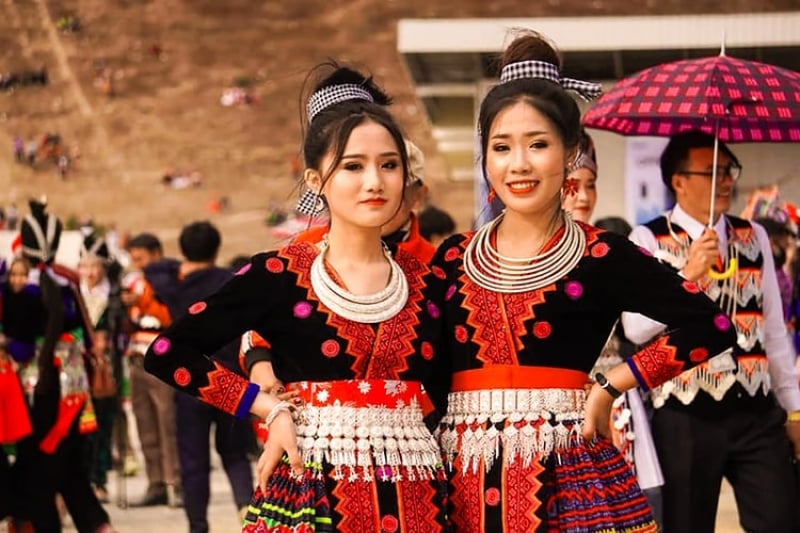Languages are beautiful. They offer us so much in terms of understanding each other’s culture and history and allow us to communicate with each other regardless of race or religion. While we can’t possibly be fluent in every language in the world, it’s always nice to know just a few basic phrases to get by.
One of those phrases is the most romantic one of all: I love you. It doesn’t matter where you’re from, there’s no mistaking the deep meaning behind these three simple words. Ever wanted to learn how to express your love for someone in every language in Southeast Asia? We’ve got you covered! Here’s your handy guide on how to say “I love you” in every language in Southeast Asia!
Also read: 10 Reasons Why You Should Learn the Local Language Before a Trip
“Aku cinta padamu” – Malaysia, Indonesia, Brunei, Singapore (Bahasa)

Image credit: Muhammad Faiz Zulkeflee
Regional neighbours Malaysia, Indonesia, Singapore, and Brunei are all multilingual countries. Sure, the usual “I love you” and Chinese “wo ai ni” (in Malaysia and Singapore) work just as fine but if you want to really impress, here’s how to say it in Bahasa.
Aku cinta padamu is often the most standard way of saying it, although you can replace the word “cinta” (which means love) with “sayang” as well. The difference is that cinta is more passionate while sayang is more casual.
“Chan Rak Ter” – Thailand (Thai)

Image credit: Evan Krause
For those who are seasoned travellers to Thailand, you’ll know that Thai is a gendered language. Depending on your gender, the way you say or express certain things are slightly different. It’s the same for the phrase “I love you.”
Generally, “I love you” in Thai can be translated as “Chan Rak Ter”. This is most often used in songs and as a general expression. However, it is often seen as slightly more feminine. If you want to impress your significant other with more advanced Thai, use “phom rak khun” if you’re male; and “chan rak khun” if you’re female.
“Anh yeu em” – Vietnam (Vietnamese)

Image credit: Bin Thiều
Similarly to Thai, Vietnamese is a gendered language. To express your love to someone, simply say “anh yeu em” if you’re a man confessing to a woman, and “em yeu anh” if you’re a woman confessing to a man. Do you see what changed?
The word “yeu” in Vietnamese means love, and using that word, you can express your love to your family and friends too! All you need to do is memorise common words and you’ll technically be able to say “I love you” to anybody.
“ Chit pa de” – Myanmar (Burmese)

Image credit: Robert Collins
Learning Burmese, thankfully, is not as complicated as learning Thai or Vietnamese. Instead, if you want to express your love for someone in Myanmar, you can just say “chit pa de’‘. This is the general term that most people use.
In addition, you can also say “ngar min ko chit tae” or “chit tae” as well. All these phrases are interchangeable so it really depends on how you want to say it.
“Knhom sralanh nak” – Cambodia (Khmer)

Image credit: Pou Neang
The official language of Cambodia is known as Khmer. Much like Thai and Vietnamese, it is also a gendered language. Luckily though, the generic term for “I love you” — “knhom sralanh nak” — is gender-neutral. To break it down, knhom means “I”, and nak means “you” in a gender-neutral context.
However, if you want to use proper pronouns, you can replace the words knhom and nak with bong (meaning “I” or “you” for males) and oun (meaning “I” or “you” for females).
“Mahal kita” – The Philippines (Tagalog)

Image credit: John Alvin Merin
There are numerous ways to express your affection for someone in The Philippines. However, the most common phrase in Tagalog is “mahal kita.” This is a general term that can be used between family and friends, as well as between lovers.
A more romantic version of the phrase is “iniibig kita”, which is often reserved for that special someone in your life. If you consider yourself hip and trendy, you can also say “lab kita”, which is slang or a mixture of Tagalog and English meaning “love ya”!
“Khony hak chao” – Laos (Laotian)

Image credit: Molydar SOUAMA
The official language of Laos is Lao (but also commonly known as Laotian). It is spoken by nearly seven million people on a daily basis and is known as one of the oldest languages in the region. To say “I love you” in Laotian, simply say “Khony hak chao”. This is the overall way to express your affection in Laotian and works in most, if not all, situations.
“Hau hadomi O” – East Timor (Tetum)
East Timor (or Timor Leste) uses Tetum as its official language. Tetum is a Malayo-Polynesian language that is also heavily influenced by Portuguese which is widely used in the country. To say “I love you” in Tetum, the correct way is to say “hau hadami o.” There is no variation needed and this phrase pretty much suits any social situation.
Also read: 10 Korean Curse Words and Phrases We Often Hear in Korean Dramas
Express your love in Southeast Asia
And there you have it: Your one-stop guide to saying “I love you” in every language in Southeast Asia! Armed with this awe-inspiring knowledge, go forth and spread love and warmth in this world!




